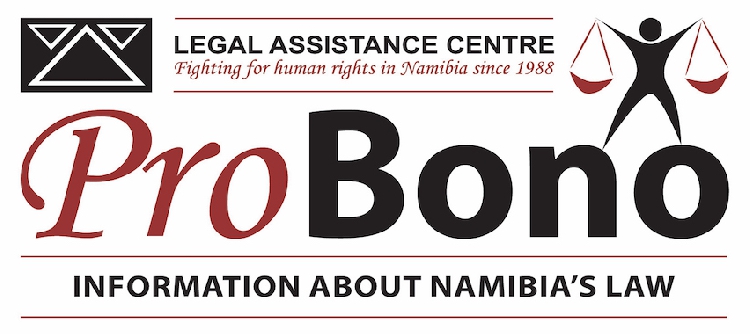Namibian citizens showed up in numbers to fulfil their civic duties on 13 November 2024 for special voting, and on 27 November 2024, the whole nation went to cast their vote in the presidential and National Assembly elections, in accordance with the Namibian Constitution, articles 28(1) and (2) and 46 (1)(a).
Elections in Namibia are governed by the Constitution of Namibia and the Electoral Act No. 5 of 2014. These laws establish the framework for conducting elections at various levels – ranging from the presidential to the local authorities.
Elections are a central feature of democracy. For elections to express the will of the electorate, they must be ‘free and fair’. Article 1(2) of the Constitution states that the power vests in the people. The electorate, therefore, mandate the organs of state to ensure that the tenets of the supreme law of Namibia i.e. the Constitution are followed. This mandate makes it an obligation for organs of state to ensure that constitutional and human rights are respected and upheld.
In a democracy – which means ‘rule by the people – like Namibia, it is key that elections should be free and fair. But for an ordinary citizen what does this mean?
‘Free’ means that everyone who is eligible to vote must be able to register to vote and must have the freedom to choose. Every Namibian citizen who is at least 18 years old is eligible to vote. When you are free to choose your preferred candidate or party and cast your ballot without fear or intimidation, an election is said to be ‘free’. Additionally, a ‘free’ election is one in which you may be sure that the identity of the candidate you support will remain confidential.
‘Fair’ means that all registered political parties have an equal right to contest the elections, campaign for voter support and hold meetings and rallies. This gives them a fair chance to convince voters to vote for them.
A ‘fair’ election is also one in which all voters have an equal opportunity to register, equal time and/or opportunity to cast their votes, where all votes are counted and where the announced results reflect the actual vote totals. The electoral agency also has to ensure that it does not discourage its voters by providing poor voting facilities such as long queues in unbearable heat and unhygienic environments.
The recent election has faced challenges and criticism regarding the freedom and fairness of the electoral process. The opposition parties alleged that the logistical failures, shortage of ballot papers and long waiting times, among other things, hindered many voters from casting their votes – thus infringing on citizens’ rights as per article 17(1)(2) of the Constitution.
Some opposition leaders claimed that the Electoral Commission of Namibia (ECN) deliberately suppressed votes.
Let us look more closely at the points of concern.
Due to the actual disenfranchisement suffered by voters caused by the logistical challenges, the ECN extended the election period in order to allow for greater suffrage. To do so, the ECN requested that the president extend the voting period, with some law experts and political parties claiming that by doing so, the ECN acted outside of its mandate as it had neither the backing of the law, nor was there a provision in the law that gave explicit power to the president to extend voting while it was in progress.
According to section 115 of the Electoral Act: “No election may be set aside by any competent court by reason of any mistakes or non-compliance with this part, if it appears to the court that the election in question was conducted in accordance with the principle laid down therein and that the mistake or non-compliance did not affect the results of the election.”
The question to be answered is whether or not this irregularity was of such a magnitude that it might have influenced the outcome of the results as stipulated in section 115.
Over the past weeks the Independent Patriots for Change (IPC) and the Landless People’s Movement (LPM) have brought an application to request the electoral court (which is mandated by section 170(2) of the Electoral Act to determine all post-election matters within seven days before the swearing in of elected officials, ensuring timely resolutions of electoral disputes) to grant them access to election materials in order to inspect them before taking further steps should they chose to do so.
The Southern Africa Human Rights Lawyers Election Observer Mission reported irregularities in the 27 to 29 November 2024 presidential and National Assembly elections in Namibia, including a lack of civic and voter education coverage in remote areas, threats of polling staff withdrawing services due to poor remunerations and operational lapses by the ECN. The mission also noted voter frustration and delays in voting processes, with 63% of polling stations opening late, 37% of polling stations opening on time, and 38% reporting ballot paper shortages.
Obstacles remain in the fight for accountability and transparency in our electoral process, as evidenced by the unrest among Namibians regarding the abovementioned issues.
It is clear that the 2024 Namibian elections faced significant challenges which undermined the core principles of free and fair elections, as voters were disenfranchised by long waits and disrupted voting processes. The ECN was criticised for its handling of the election, raising concerns about its competence and transparency which led to legal questions. Ensuring accountability and addressing these concerns will be a cornerstone of restoring public confidence in Namibia’s democratic process.
This article was made possible by support from the Hanns Seidel Foundation (HSF). The contents expressed in this publication are those of the authors and do not purport to reflect the views and opinions of the HSF.
Stay informed with The Namibian – your source for credible journalism. Get in-depth reporting and opinions for
only N$85 a month. Invest in journalism, invest in democracy –
Subscribe Now!










